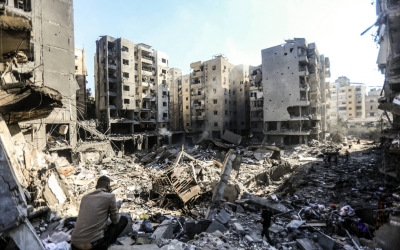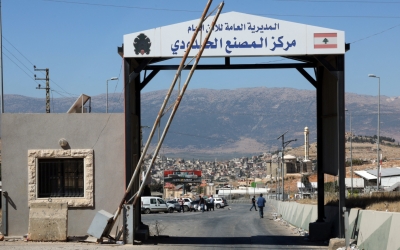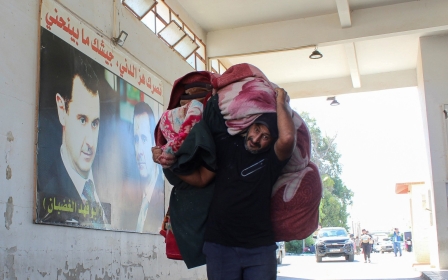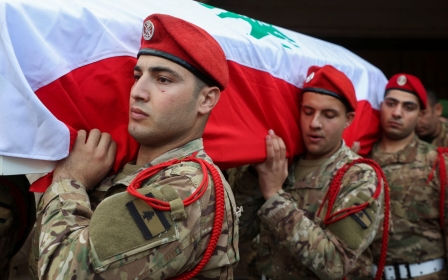UN peacekeepers in Lebanon wary after Israeli forces set up base next door
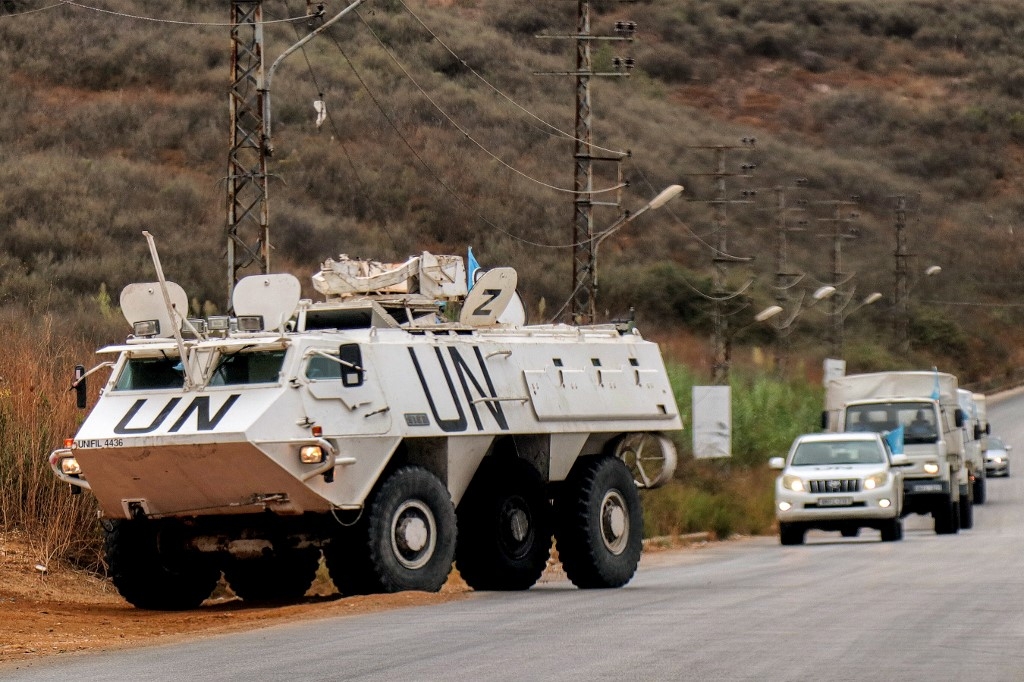
UN peacekeepers in Lebanon have been growing increasingly concerned by the activities of the Israeli army in areas adjacent to their operations.
The United Nations Interim Force in Lebanon (Unifil) was established in 1978 and since the last Israel-Hezbollah war in 2006, it is the only military force apart from the Lebanese army that should be deployed between the Israeli border and the Litani River, 30 kilometres north of the border, under UN Resolution 1701.
Following Israel's invasion of Lebanon last week, however, the Israeli army has begun to increase its presence throughout the south, ostensibly to target Hezbollah operations in the region.
Israel ordered Unifil to evacuate its bases in the areas it was operating - however, it refused.
Now, Israel has reportedly established a forward operating base within very close proximity to UN Post 6-52, which is staffed by Irish peacekeepers, raising alarm from the organisation about the possible threat to their activities.
New MEE newsletter: Jerusalem Dispatch
Sign up to get the latest insights and analysis on Israel-Palestine, alongside Turkey Unpacked and other MEE newsletters
"Unifil is deeply concerned by recent activities by the IDF immediately adjacent to the Mission's position 6-52, southeast of Maroun al-Ras... inside Lebanese territory," it said in a statement on X (formerly Twitter) on Sunday.
"This is an extremely dangerous development. It is unacceptable to compromise the safety of UN peacekeepers carrying out their Security Council-mandated tasks."
Unifil added that the Israeli army had been "repeatedly informed of this ongoing situation through regular channels".
It reminded "all actors of their obligations to protect UN personnel and property".
Lebanese political analyst Ali Rizk told Middle East Eye that the primary role of Unifil was to monitor violations by Israel or Hezbollah and that disrupting its activities could make abuses more commonplace.
"Israel has shown blatant disregard for the UN organisation as a whole and whether these forces are there or not will not make much difference in terms of the operations by Israel targeting civilians," he said.
"The withdrawal of these forces could however push the Israelis to escalate even more their operations as there would be no oversight."
'Terrorist infrastructure'
Images obtained by Irish state broadcaster RTE, which the Irish military said could not be published for security reasons, showed at least 20 pieces of Israeli military equipment, including tanks and armoured vehicles, stationed immediately adjacent to the UN post.
Irish troops stationed at 6-52 are attached to a larger base, Camp Shamrock, around seven kilometres away from it, which also oversees the 6-50 camp, manned by a Polish contingent.
'The withdrawal of Unifil forces could however push the Israelis to escalate even more their operations as there would be no oversight'
- Ali Rizk, analyst
On Sunday, Israel pounded the village of Yaroun, near Bint Jbeil. Footage showed the area, which Israel said contained "terrorist infrastructure", largely reduced to rubble, including Al-Imam Ali ibn Abi Taleb Mosque.
Yaroun is located just two kilometres from the 6-50 camp, which is on a hill along the Blue Line, the quasi-border that separates Lebanon from Israel, and has sight-lines onto the west, south and east of the town, according to RTE.
"It would be a dangerous development indeed for Unifil to be forced out of southern Lebanon," said David Wood, Lebanon analyst at the International Crisis Group.
"While the vast majority of residents have already evacuated, Unifil 's continued presence would potentially have a calming influence on both sides, helping to reduce violence and destruction in the area."
Hezbollah on Monday said its fighters had been ordered not to engage Israeli forces in the area in order to "preserve the lives of the soldiers of the international forces", and accused Israel of using the UN peacekeepers as an effective "human shield" to allow their advances northwards.
Rizk said Hezbollah wished to appear as a "rational actor" in the current conflict and be seen to respect UN institutions in contrast to Israel, which has accused many of them of containing "militants" or having an anti-Israel agenda.
"Hezbollah has long sought to show that south Lebanon is a hospitable environment for Unifil forces and its pledge not to endanger these forces is in line with its own ideology that differs greatly from al-Qaeda affiliated groups that have previously attacked the UN troops," he explained.
Middle East Eye contacted Unifil for a comment but did not receive a comment by the time of publication.
Unifil's limited control
A year after warfare began between Israel and Hezbollah, the bloodshed in Lebanon is arguably the worst it has been since the end of the country's 15-year civil war in 1990.
Israeli air strikes on Tuesday targeted the towns of Arabsalim, al-Sultaniyah, Yater, al-Qulaylah, Aytaite, Tayr Harfa, Ansar and Siddiqin in southern Lebanon, Al Jazeera Arabic reported.
The report added that Israeli fighter jets also carried out air strikes on the town of al-Khader in the Beqaa region, eastern Lebanon.
Despite their decades-long mandate being renewed in August, Unifil's ability to mediate or control the situation in the south appears limited.
In a statement on Tuesday, UN special coordinator for Lebanon Jeanine Hennis-Plasschaert and Unifil head of mission and Force Commander Lt Gen Aroldo Lazaro, called for a "negotiated solution" to end the violence in the country.
"Every missile or rocket launched, bomb dropped, and ground raid conducted pulls the parties further away from the vision set forth in resolution 1701, as well as from the conditions necessary for the enduring security of civilians on both sides of the Blue Line," they said.
"The time to act accordingly is now."
Wood told MEE that Unifil still had a relevant role to play in southern Lebanon, despite lacking the capacity to enforce UN Resolution 1701.
"It has long provided useful services in helping both sides to de-escalate potential clashes, including during the war's earlier stages. Unifil will probably need to play a key role in whatever new security arrangement follows the conflict's end."
Middle East Eye delivers independent and unrivalled coverage and analysis of the Middle East, North Africa and beyond. To learn more about republishing this content and the associated fees, please fill out this form. More about MEE can be found here.


